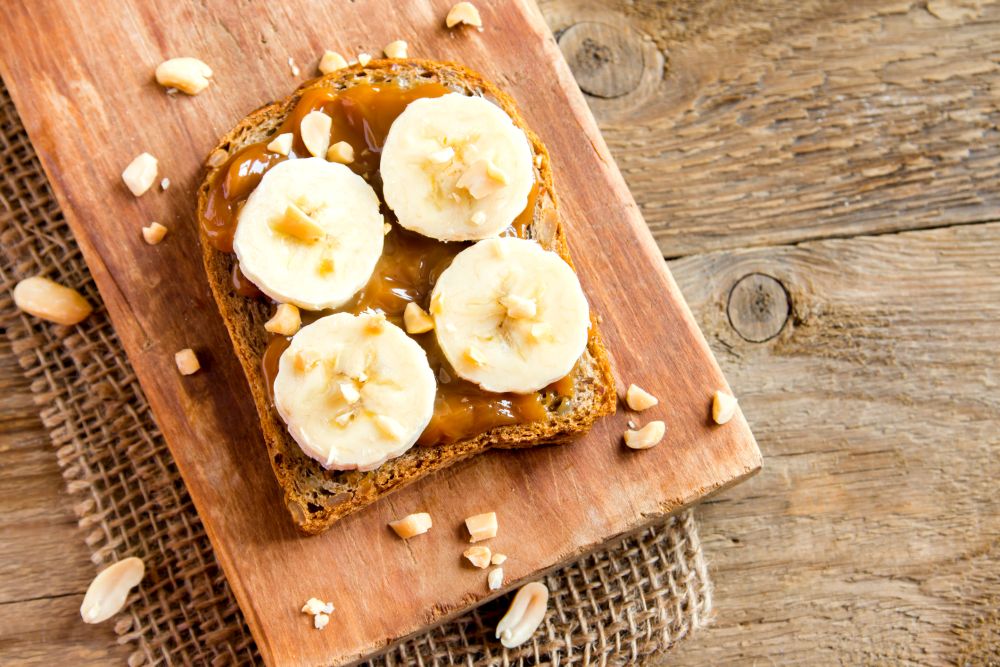Marathon training-induced hunger: how to deal
Here are tips and tricks to ensure you're getting enough fuel during your marathon build

Lots of runners are in a high-mileage cycle of training, and when mileage goes up, so do hunger levels. A hungry runner is a special kind of hungry–in fact, a runner isn’t usually just hungry, they’re hangry.
If you’ve become angry with hunger a couple times in the past few weeks and are looking to keep those feelings at bay, here are a few tips and tricks to help you avoid an extreme hunger episode.

RELATED: What Reid Coolsaet eats in a day
Eat a high-protein breakfast
Recommendations for endurance athletes are to consume 1.8 grams of protein per kilogram of body weight. So, a 130lb (59kg) female would need 106 grams of protein per day. A 180lb (82kg) male would need 148 grams.
Aim to have between 20-25 grams of protein with each meal. This is often achieved at lunch and dinner without much thought, but don’t forget about breakfast. If your morning meal is usually a bagel with peanut butter, consider adding some eggs or a yogurt to bump up the protein content. It’s good for your recovery and can help keep you full for longer.

Stash snacks everywhere
There’s nothing worse than becoming extremely hungry and having either no food options or food options that don’t interest you. To avoid this, keep bars or fruit in your car, your purse, your backpack and your desk. Keep snacks basically everywhere you go.
This way when your friends are running late for a dinner date or the subway is delayed, you’re covered when your stomach inevitably starts growling.
Eat consistently
People’s days are busy, and when your day gets away on you, your food consumption can become sporadic. If this sounds like you, try and make an effort to keep meal times consistent and sensibly spaced out. Aim to have a meal or snack every three to four hours. Eating a huge dinner after hours without food can leave you feeling uncomfortable. It’s easier on the body to pace your meals and snacks throughout the day.
The middle of the night snack is common
Was hungry at 2am, so I made myself a peanut butter sandwich and drank a Gatorade, and just now woke up from a 40min midday nap.
Marathon training me, and 20 year old partier me behave similarly.— Lyndsay Tessier (@lyndsay_tessier) July 3, 2019
Lyndsay Tessier said it well: “Was hungry at 2 a.m. so I made myself a peanut butter sandwich and drank a Gatorade.”
Waking up hungry is a real thing when you’re marathon training, and having midnight snacks is encouraged.

Listen to your body
When you are marathon training, your caloric needs are pretty high. During your build it’s crucial to listen to your body, eat nutritious food, and eat when you’re hungry. Jennifer Sygo is a registered dietitian and performance nutritionist for both Athletics Canada and the Toronto Raptors who spoke to Canadian Running about cravings. She says that denial can breed very strong cravings, and emphasized the importance of listening to your body. “Avoiding denial is crucial. For example, if you’re craving carbohydrates and you eat a sandwich, you need to avoid feeling guilty after eating that sandwich. Acknowledge that you’re feeling depleted and craving carbs. An extra serving of potatoes at dinner is alright. Fighting the cravings only makes them worse.”
RELATED: Why your food cravings aren’t necessarily a bad thing


